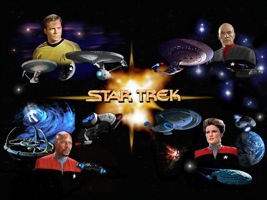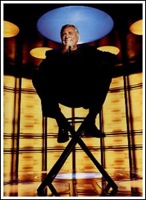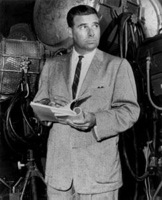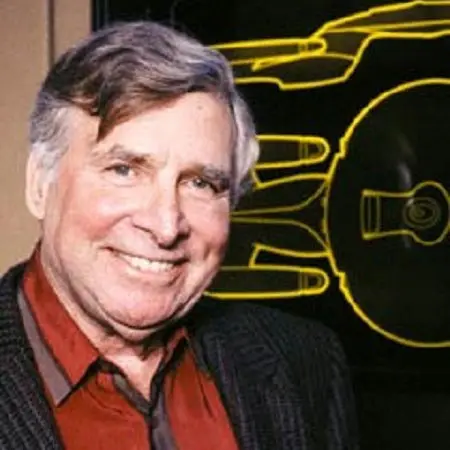Throwing all caution to the wind, Richard Dreyfuss shares the sentiment:
“You want to know what going to a movie is all about? It’s a religious experience, surrender to it, it’s great.” (Parker Tyler, Magic and the Myth of the Movies (New York: Simon and Schuster, 1970)
In contrast to Hollywood’s salesmen who would have us abandon all sense of reason to blindly accept their pandered bill of goods, the Word of God commands us:
"But examine everything carefully; hold fast to that which is good; abstain from every form of evil." –1 Thessalonians 5:21-22
The type of religious experience the King Kongs of Hollywood would have us surrender to through movies should be crystal clear. Christians are called to be on guard against fraudulent affirmations of the world system that is under the control of their enemy. Unfortunately, many people have fallen prey to their religious delusions and become casualties of the movie machines who march forward uncaring as to who they tread down in the process. Satan’s spread of immorality and religious reformation was increased in the 1980’s, as a new wave of what was formerly considered religious poppycock took root. As always, Hollywood was on the front lines to lay the groundwork needed to gain momentum in the paradigm shift.

The resurgence in the 1980’s of Gene Roddenberry’s Star Trek feature films re-ignited the fire of millions of dormant "Trekies" around the country. Continuing on steadily through the 1990’s, the Star Trek phenomenon branched out into multiple television shows that paid tribute the original 60’s series. Replete with New Age iconography, the Star Trek shows categorically dealt with issues such as telekinesis, mental telepathy, atheism, psychic phenomena, channeling, mind transference, entities cohabiting the same body and occult themes and ideologies that were strung throughout the series. The creator of the rage, Gene Roddenberry, has become somewhat of an icon himself, and was responsible for much of the current space age mania that has become ingrained within the culture today.
It may be shocking to some to learn that this hero of sorts had zero regard for Christ and was dead set on establishing a new age of thought that countered Scripture through his cinema creations. Roddenberry’s biographer, Joel Engel, reflects on the humanistic propensities that governed his life in accordance with Crowley’s undoing of moral restriction:
“A devotee of humanistic philosophy, he had disdained organized religion, having long before slammed the door on the Baptist teachings of his early childhood in the belief that religious faith was a vestige of prerational age. In Roddenberry’s universe, Man made the rules and Man could break the rules.”
Jesus said that He was the only door to the Father, and when Roddenberry slammed this door, his life became subservient to the dictums of the ruler of this world who found use for him by creating false worlds and realities whereby people could find refuge in apostate philosophy. These worlds sent a harmonious message with Crowley’s axiom. He says:
“It’s not a place of ‘thou shalt nots.’ The only ‘thou shalt not’ in Star Trek is interfering with anyone’s right to be who they are.”
Moreover, just like Crowley, Roddenberry has recalled his Christian upbringing with disdain:
“I had never really paid much attention to the [church] sermon before, I was more interested in the deacon’s daughter and what we might be doing between services. I listened to the sermon, and I remember complete astonishment because what they were talking about were things that were just crazy.”
Roddenberry had a clear grasp on the concept that his television shows would be the wave of the future. His future shows would comply with his antichristian and humanistic New Age mindset to prepare mankind for its unavoidable future under the antichrist. His programs had a stunning impact on American culture, eventually making Star Trek a household name, mainly because they spoke to fundamental issues appealing to the human race as a group travailing to remain cohesive without responsibility to God’s commands. This is compliant with the theory of evolution, which many New Agers adhere to as part of our divine remaking into gods. Roddenberry states:

“It’s a kind of interdependence in which the whole is greater than the sum of its parts. I think this will form a new species, a human collective. I think we may be headed that way. It seems to be a natural consequence of evolution.”
Akin to occult and Satanic teachings, Roddenberry suggests that we are all gods when asked, “So basically what you are saying is that I am God?” He replied: “Certainly. We both are.” But as he points out, this is opposed to the Biblical truths and in line with mysticism, which he sought to disguise through the characters and stories on his shows:
“It’s not the Judeo-Christian God…that was a leap of faith. Creating Star Trek was a very spiritual experience, in that definition…It really is a life beyond this one. It’s my world…Perhaps it’s that divinity in us that we call God.”
One Star Trek motion picture sought to drill this lie into the consciousness of its fans with the following script dialogue:
Captain Kirk: “Cosmic thoughts gentlemen?”
Bones McCoy: “We came speculating. Is God really out there?”
Captian Kirk: “Maybe he’s not out there, Bones. Maybe he’s right here. (Pointing to his chest.) The human heart.”
The storylines that made Roddenberry famous were in fact given to him in conduit fashion from the demonic kingdom. Recounting his role as a medium, he admits:
“What happens is that I bring them out into this world, the world of humanity, and they take their place among them. Among us. But I don’t think I create them. They already exist. I just, I just, introduce them. That’s really where the whole idea of Star Trek came from…I’m just a vehicle, a transporter.”

He has also admitted to receiving the basis for his shows through psychic intervention and explanation. Anton LaVey and Aleister Crowley both spoke of a group of demonic entities collectively called "The Nine." Crowley wrote: “I serve my great master Satan and the august Council of Nine.” Roddenberry wrote a script for an entire summer under the influence of a psychic entitled “The Nine,” about a group of aliens who would invade the earth and establish a new kingdom, which reverberates with the Scriptural prophecies about the antichrist and his new kingdom under Satan and his fallen angelic alien beings.
Roddenberry’s surrender to the forces that are aligning this world against Christianity and Christ allowed for him to make incredible statements to hundreds of millions of people globally that reflects the wicked intent of his messages. He stated of Kirk, “I’m Kirk. Captain Kirk,” and of Spock, “He’s me.” So in reality, the characters of the show served as front men to deliver a facilitated message that truly represented the satanically inspired stance of Roddenberry himself. He admits:
“That’s why I had to make Star Trek. I felt I had something of importance to say, and if I could say it in a way that was entertaining to others, then maybe they would listen.”
It is the same old song and dance with these eccentrics that are unable to transmit their foreign ideas through regular modes of communication because people on most counts tend to think they are psychotic. So, they therefore set out to Hollywood, where they can be received with open arms and given full access to the entire world for the spreading of their message couched in entertainment. No wonder it is called Sin City – Satan loves this place.
Arguing that Roddenberry was influenced by occultism is like arguing that the sky is blue- the evidence is clearly there for those who are willing to take a look. Keep in mind that in addition to the original Star Trek series, the spin-offs Star Trek: The Next Generation and Star Trek: Deep Space Nine has viewers rallying back to their television sets several times a week. Also, the series has spawned seven motion pictures, animated episodes, as well as fan clubs, organizations, fanzines, merchandise, conventions, monthly mass market publications, novels, fan club magazines, technical manuals and much more. As if these do not speak for themselves, it also happens to be the favorite show of the Eastern mystic who believes himself to be the reincarnated Messiah of the world, the Dalai Lama, further illustrating how the overt themes of the show can coordinate with those of premier leaders who hold to demonic ideals. The supernatural involvement of spiritual forces of darkness that are instrumental in making the world more cohesive for the future reality under the antichrist are totally behind these programs. Satan is in the process of making converts and discipling his own for this time ahead, where the world will reflect the ideologies embraced by shows that make no room for the one true God. As practitioner of Crowley’s magic, Robert Anton Wilson, agreed: “Star Trek is a better guide to the emerging reality than anything else in the New York Review of Books.”
***
Gene Roddenberry quotes taken from:
Joel Engel, Gene Roddenberry: The Myth and the Man Behind Star Trek, Hyperion, 1994


Greetings from a gloomy, drizzly London, UK, in March 2023. I’ve been a Christian for 33 years now but my growth and maturation have been slow. This may be down to the fact that, to relax, I watch too much TV. My excuse has been (until recently, when I switched to blue-collar work) that I had a mentally demanding job and that the idiot box was the perfect thing for me to use to recharge my batteries. I particularly spent too much time watching Star Trek, which was both addictive and left me feeling empty. I had all the films (including the recent ones), the Original Series, DS9 and Voyager on DVD. This morning, I put them out for collection by the bin men (I’m not able to burn anything where I live or I would have burned them). Thank you so much for this article. I am indebted to GoodFight Ministries. Please keep doing what you’re doing; even though I find some of the stuff you cover far too dark to watch, I’m glad you expose it. May God bless you and keep you.
God is good! We are encouraged by what God is doing in your life.
The lie that we are (or can become) a god is the same lie told to Eve in the Garden of Eden by the serpent (the devil). There is only one God, the Creator of the universe. We are certainly not divine, we are simply made in God’s image. Christ never claimed that we have divinity, He only spoke of the Holy Spirit coming to live in us when we accept God’s gracious gift of salvation through His Son, Jesus Christ, and what He accomplished on the cross for us, in our place. “For all have sinned and fall short of the glory of God, being justified as a gift by His grace through the redemption which is in Christ Jesus; whom God displayed publicly as a propitiation in His blood through faith” (Romans 3:23-25).
this is great stuff against the occult new ager satanist !
Thank you for providing such insights. What you are saying is true. May God richly bless you as you continue in His Work!
“clap trap ?” do you consider this a solid intellectual grounds for debate ? sounds like emotional impulse to me. your generalized comment of understanding 0% of the create process is proven untrue given the details and quotations from Gene himself. One doesn’t have to understand the creative process to make an argument against a man with foolish ideas. Speaking of my self i am very much involved in various creative processes. yet i dont willfully allign myself against god by propagating lies about him to the world, REGARDLESS of the payoff. Sure its sad to see our cherished forms of “entertainment” tainted and being used for insidious ends, however would you rather fight against good because evil packages there image with such an persuasive stradegy.
Roddenberry was clearly conditioning the populace to accept New Age philosophy and the coming antichrist.
Jesus said we would be mocked when we spoke truth, and His words were fulfilled, as the comments here clearly demonstrate.
They have been deceived poor souls…I will pray that by the Gospel you provided above the Father will draw them and the Holy Spirit will convict their hearts.
We must always bear in mind that it is not our job to convince anyone…our job is to disseminate the Gospel message. As the old saying goes ”A man convinced against his will is yet an unbeliever still.”
Keep up the good work guys! It’s working for some of us. After watching your “sold my soul for rock ‘n’ roll“ videos I threw out all my CDs and T-shirts – my eyes were opened and now I see! I had totally bought into the lies.
Thank you so much for your faithful service to the Lord.
May God continue to bless your ministry.
Typical religious claptrap, making dry bones out of your lives – with zero understanding of the creative impulse, zero imagination, and zero ability to see outside the narrow confines you impose upon yourselves and others.
You remind me of the muslim general who, when asked if he should burn the books of the Library of Alexandria, said “If it supports the koran, we don’t need it. If it contradicts the koran, we don’t want it.”
Feel free to give meaningless chapter and verse as your reply.
A purely emotional reaction to the article, with no clear specific objections as to what is written therein, only sweeping generalizations. The article speaks for itself, though you didn’t address anything in it. If you have something specific you’d like to address/correct in the article, we’d be happy to take a look.
Adherents to so called satanism, as in the case of JayZ, is a cold slap in the face of all religious dogmatism, not just Christianity. The expression “Do as thy wilt” points to actual human divinity (GOD IN MAN) often spoken of by Christ himself. The fact that all world religions copy to a large degree from KMT (Black) Spiritual System, none can claim authenticity with any greater degree than they can claim divine truth. Because of this fact, the world as such remain in a state of total darkness (a conscious dead state) inspiring any sane person to know of their own inherent power as the most reliable path to clear comprehension of THE CREATOR. Interstellar travel and its ultimate success will be owing to Roddenberry’s clear grasp of human potential and luminous visionary.
[Edited for readability by GFM]
The lie that we are (or can become) a god is the same lie told to Eve in the Garden of Eden by the serpent (the devil). There is only one God, the Creator of the universe. We are certainly not divine, we are simply made in God’s image. Christ never claimed that we have divinity, He only spoke of the Holy Spirit coming to live in us when we accept God’s gracious gift of salvation through His Son, Jesus Christ, and what He accomplished on the cross for us, in our place. “For all have sinned and fall short of the glory of God, being justified as a gift by His grace through the redemption which is in Christ Jesus; whom God displayed publicly as a propitiation in His blood through faith” (Romans 3:23-25).